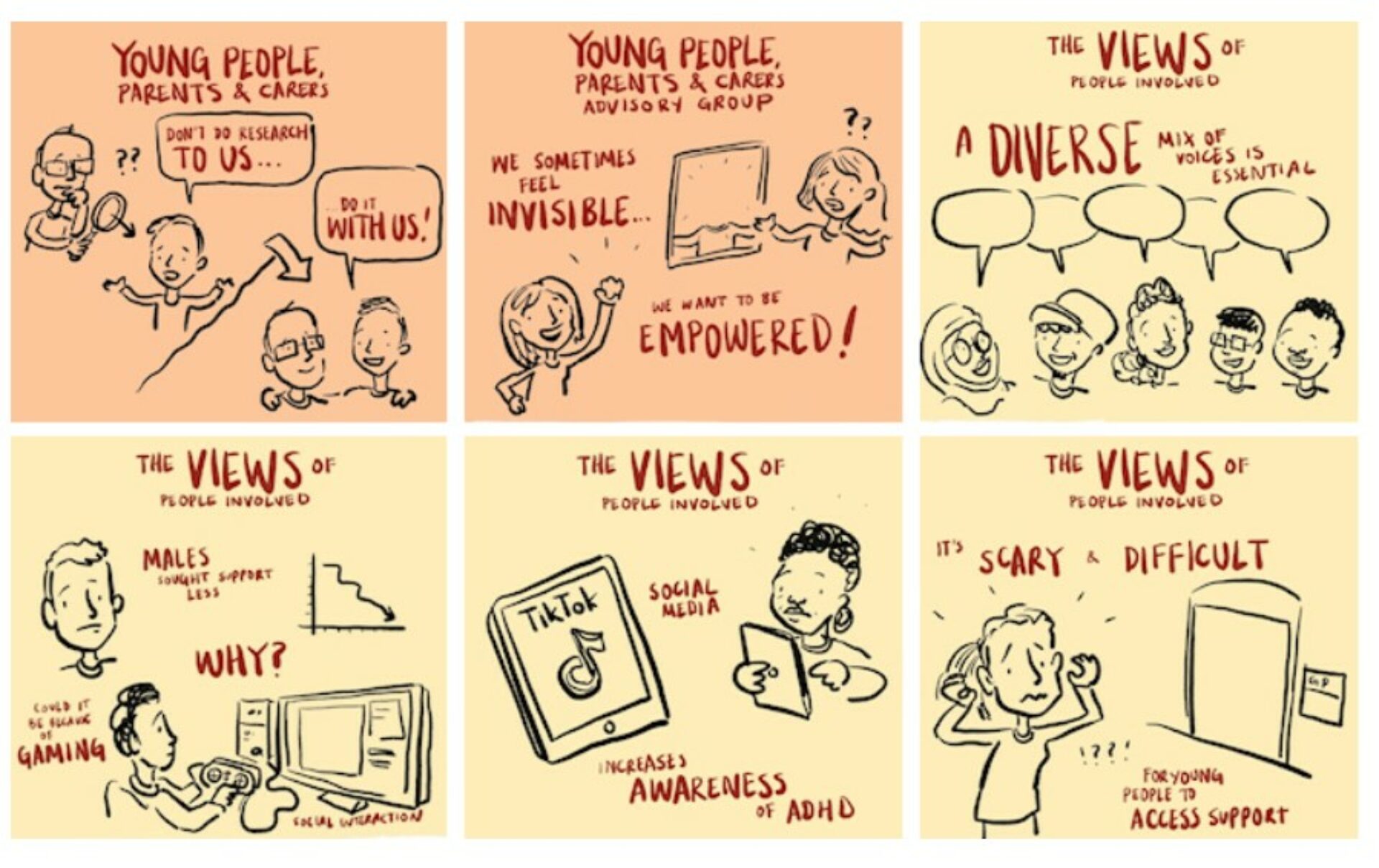A new study found significant changes in the mental health of young people during the pandemic – we share what it says and recommendations moving forward.
Carolyn Chew-Graham & Pearl Mok
It’s no secret the pandemic had an impact on the UK’s mental health – and that young people were affected in ways that haven’t been fully realised yet. While some impacts won’t become clear for, potentially, years, we wanted a clearer picture of how they’d been affected in the first two years.
Researchers from the University of Manchester, Keele University, University of Exeter, and the McPin Foundation have been working together to investigate the mental health of children and young people during the COVID-19 pandemic.
Using anonymised patient data from GP practices across the UK, we worked with an advisory group of young people and parents/carers, as well as professionals from the health, social care, education, and third sectors.
We included data from children and young people aged 10-24 years, and looked at:
- Diagnoses of: depression, anxiety disorders, eating disorders, attention deficit hyperactivity disorders (ADHD), autism spectrum disorder, personality disorders, and substance misuse.
- Incidences of self-harm
- Prescriptions for psychotropic medicines, e.g. for depression, anxiety, and ADHD
- Referrals to further treatment (e.g. mental health services)
We presented some of the key findings at a webinar in May 2023. You can read more about it in The Mental Health of Children and Young People Before and During the COVID-19 Pandemic webinar – a summary in pictures
There has been a large increase in numbers of eating disorder diagnoses and self-harm episodes among teenage girls. There is therefore an urgent need for intervention.
Large reduction in all mental health diagnoses at start of ‘lockdown’
One of the findings that stood out the most was around a reduction in diagnoses at the start of the lockdown period.
Reasons for these reductions were thought to be related to the public health messages to ‘stay at home’ and the request to ‘protect the NHS’.
Since school might be an important stressor for children and young people, not being in school during lockdown could have meant not being exposed to a key stressor.
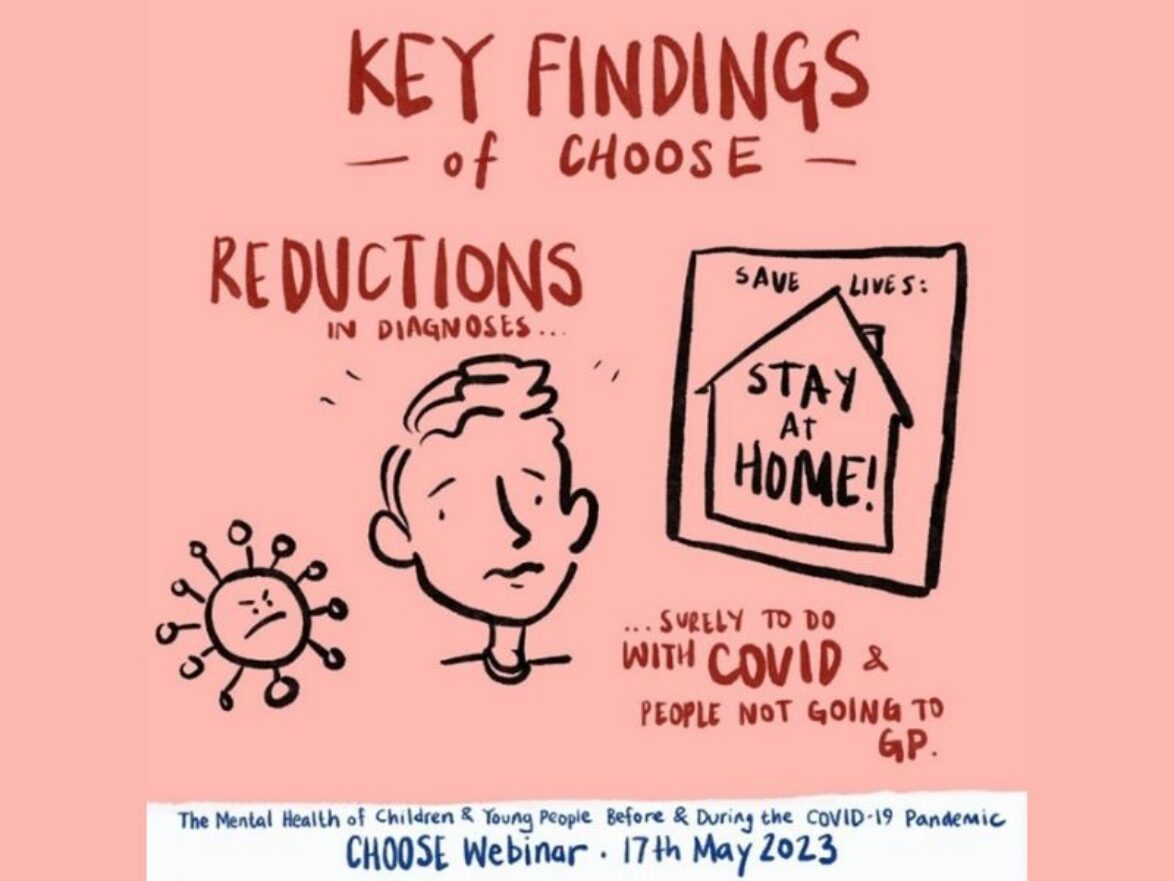
Two years since the onset of the pandemic, numbers of psychiatric diagnoses were still largely below what we expect, especially in males.
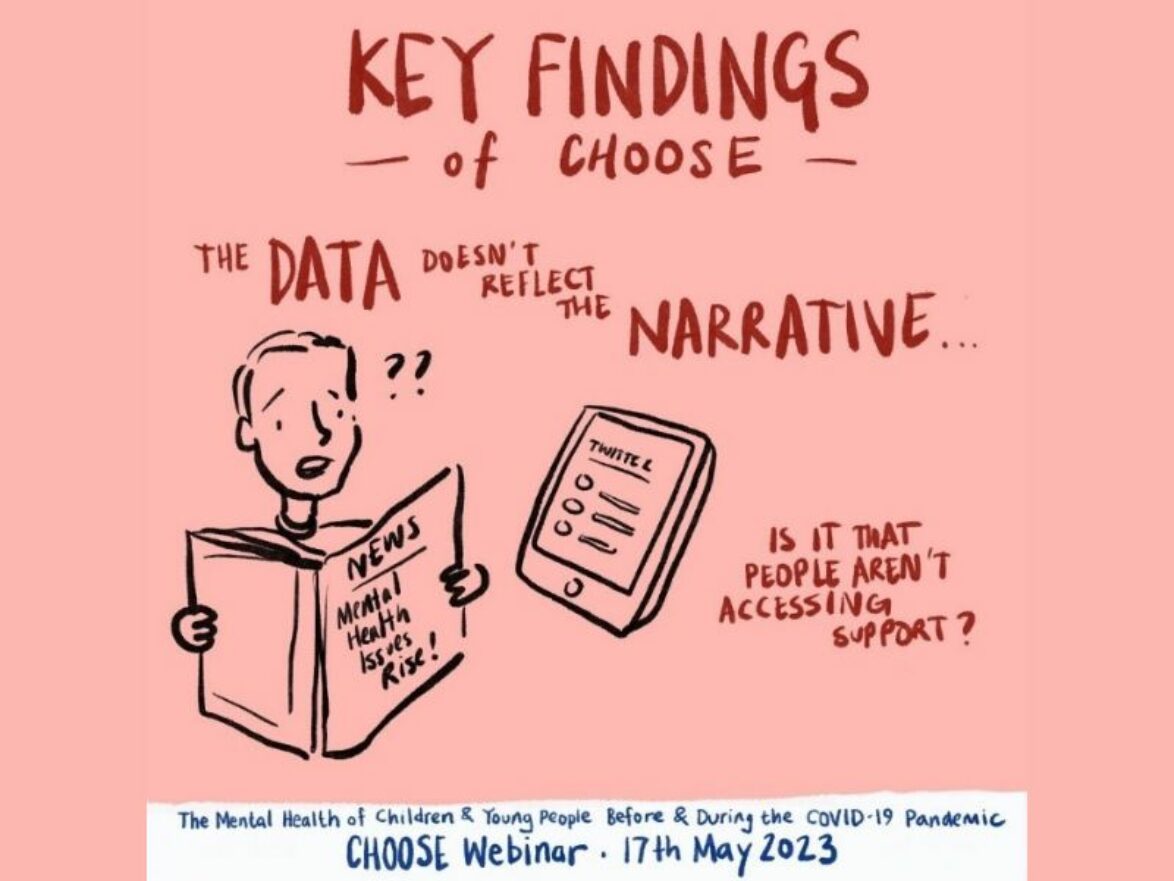
However, there has been a large increase in numbers of eating disorder diagnoses and self-harm episodes among teenage girls. There is therefore an urgent need for intervention.
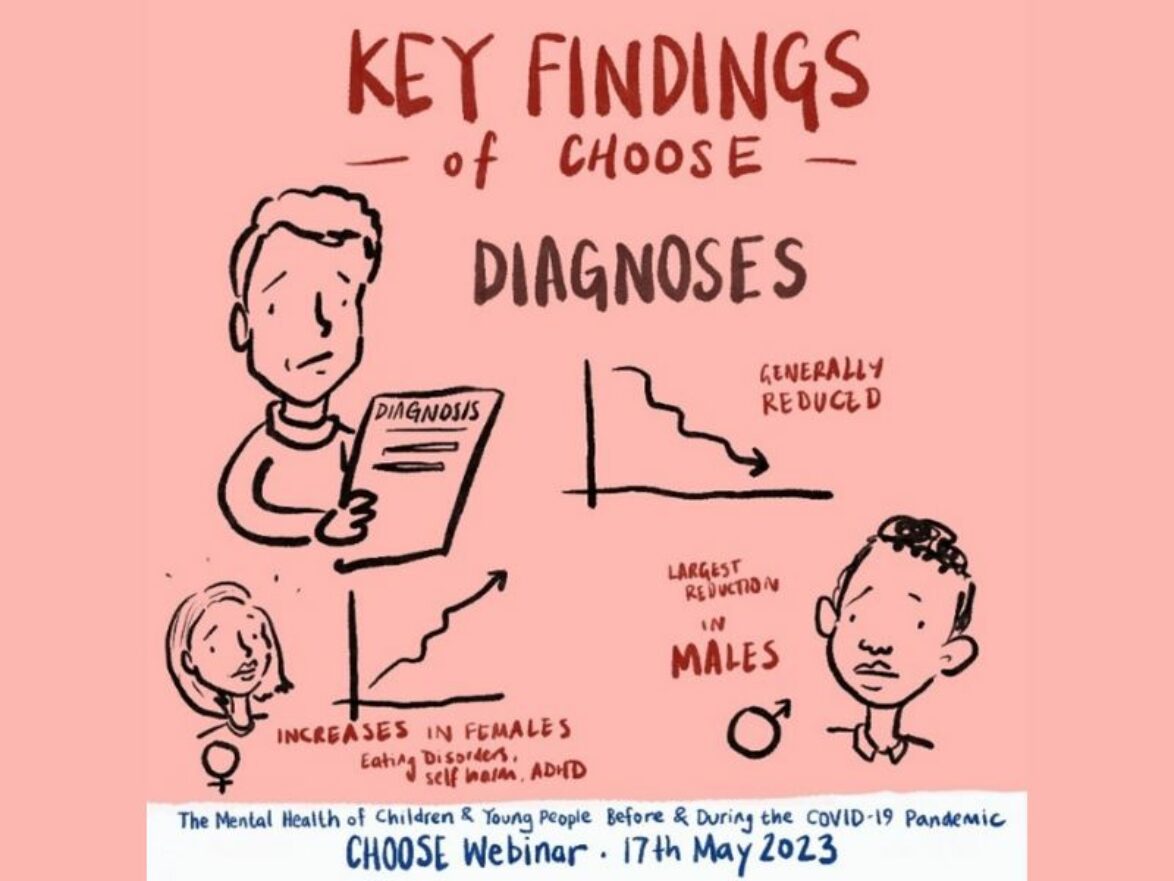
There has also been a large rise in the number of females being diagnosed with ADHD or prescribed ADHD medications.
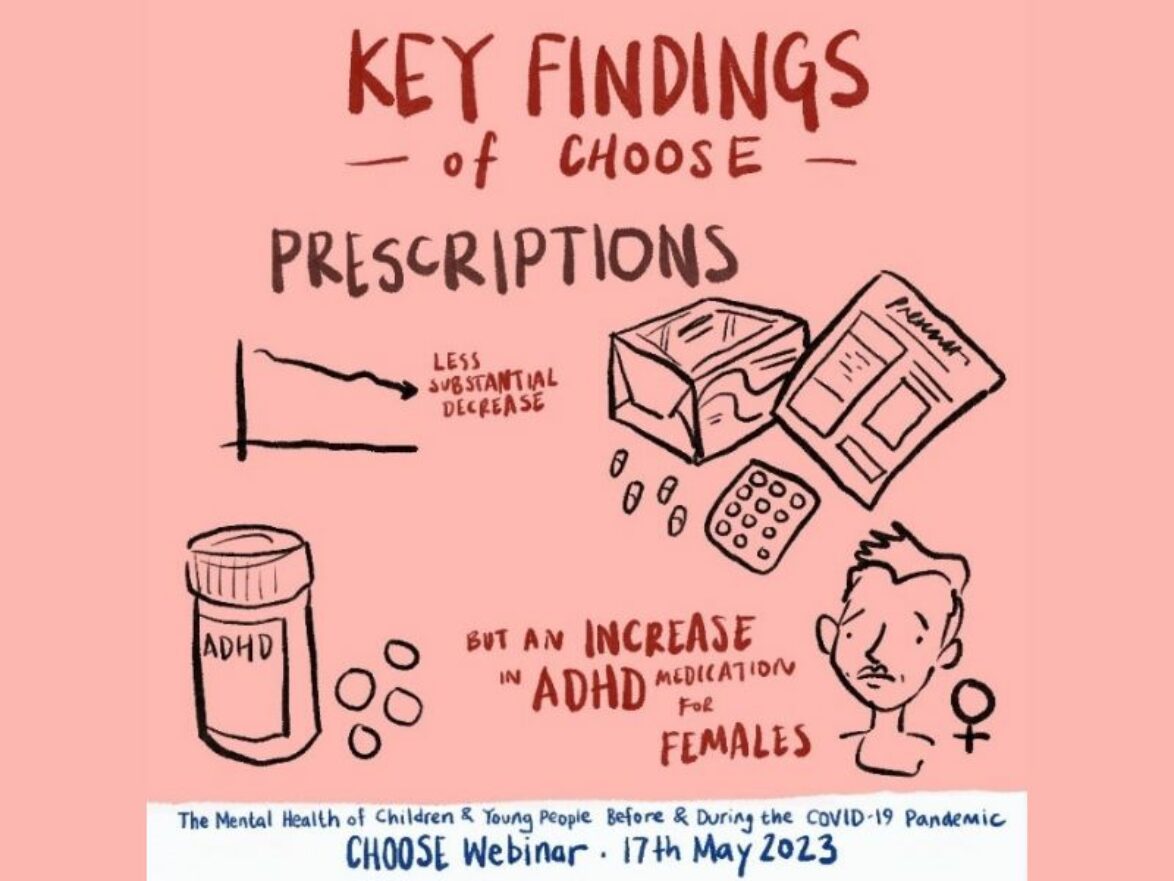
Key messages for children and young people
As well as information for services and schools, the study also provided some useful takeaways for young people struggling with their mental health.
- If you feel upset, do talk to someone – whether your parents, a family member, a trusted friend, or a teacher.
- Be honest about how you feel – you’re not ‘bad’ or ‘broken’ for feeling the way you do.
- See what help is available at your school/college.
- Look at online support/apps, although be aware of the sources of information – trusted websites and apps like the NHS are a good place to start.
- Reach out to third sector organisations such as young people’s mental health charities – they often have chat or text options if you don’t feel comfortable calling.
- If the feelings continue it’s a really good idea to speak to your GP (general practitioner), who can discuss how best to help you.
The importance of working with people with lived experience in research
A vital part of our study was the valuable contributions made by our advisory group of young people and parents/carers. They helped shaped our study, giving us an ‘insider’ perspective, and providing possible explanations of our findings.
The importance of involving people with lived experience in research was summarised by our young people advisory group member Lauren during our webinar.
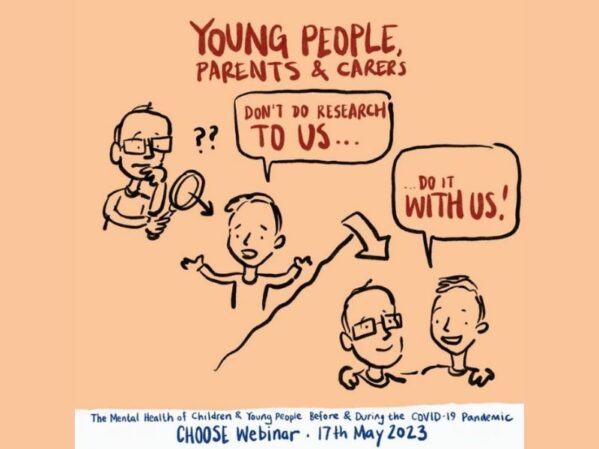
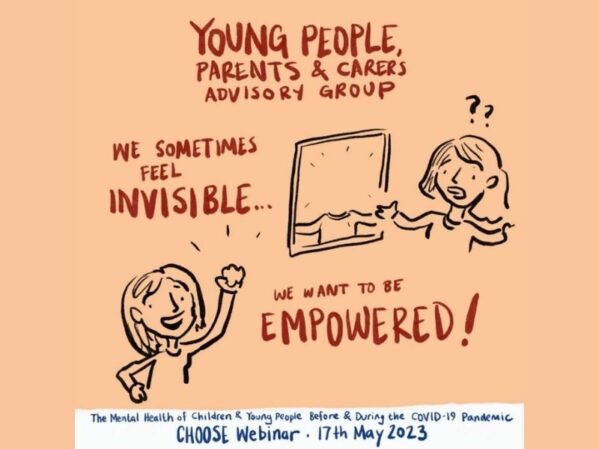
Lauren also emphasised the need to ensure that patient advisory groups include people from diverse background so that their voices are heard.
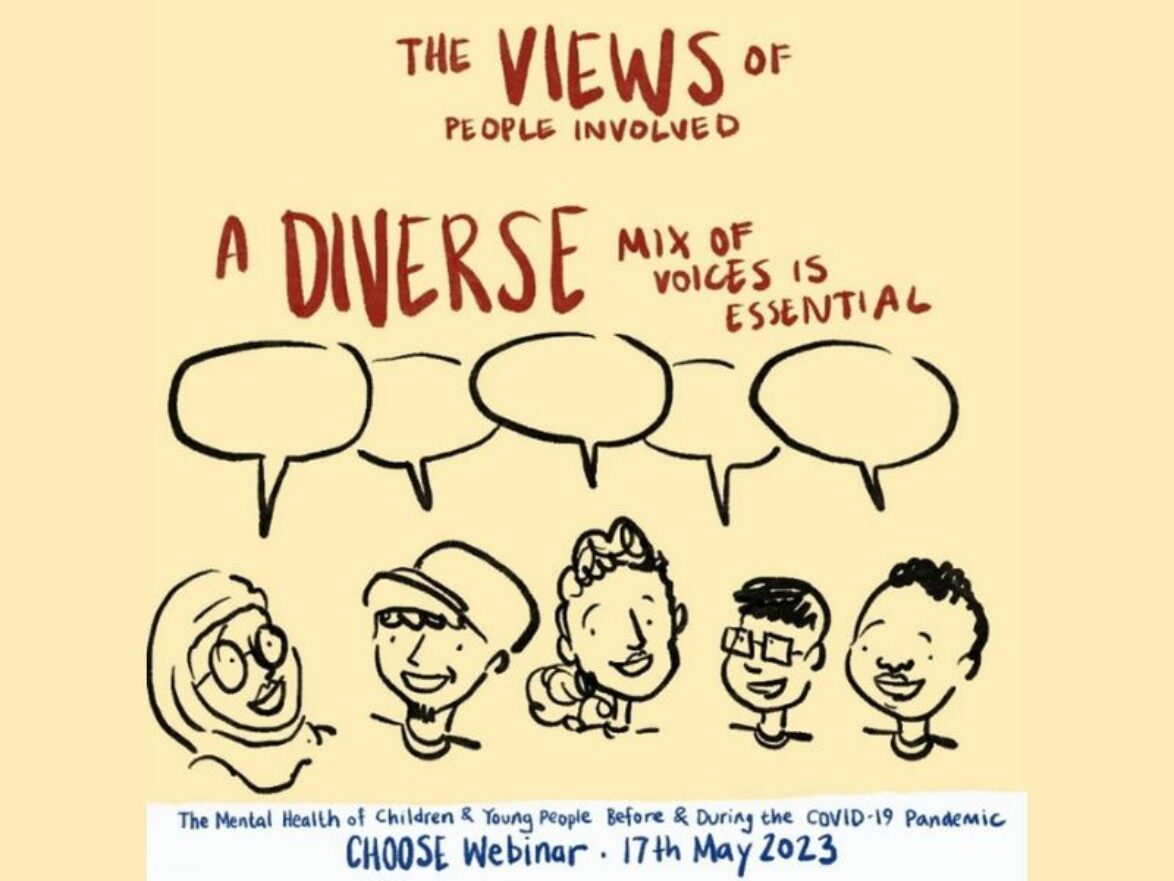
Further information and next steps
Our findings on eating disorders and self-harm were recently published in the Lancet Child & Adolescent Health.
Over the next few months, we will disseminate other findings and key messages in infographics, videos, as well as further academic papers. Please sign up to the McPin newsletter to stay up to date on the study.
Carolyn Chew-Graham is a GP, Manchester and Professor of General Practice Research, Keele University. Pearl Mok is a Research Fellow.
